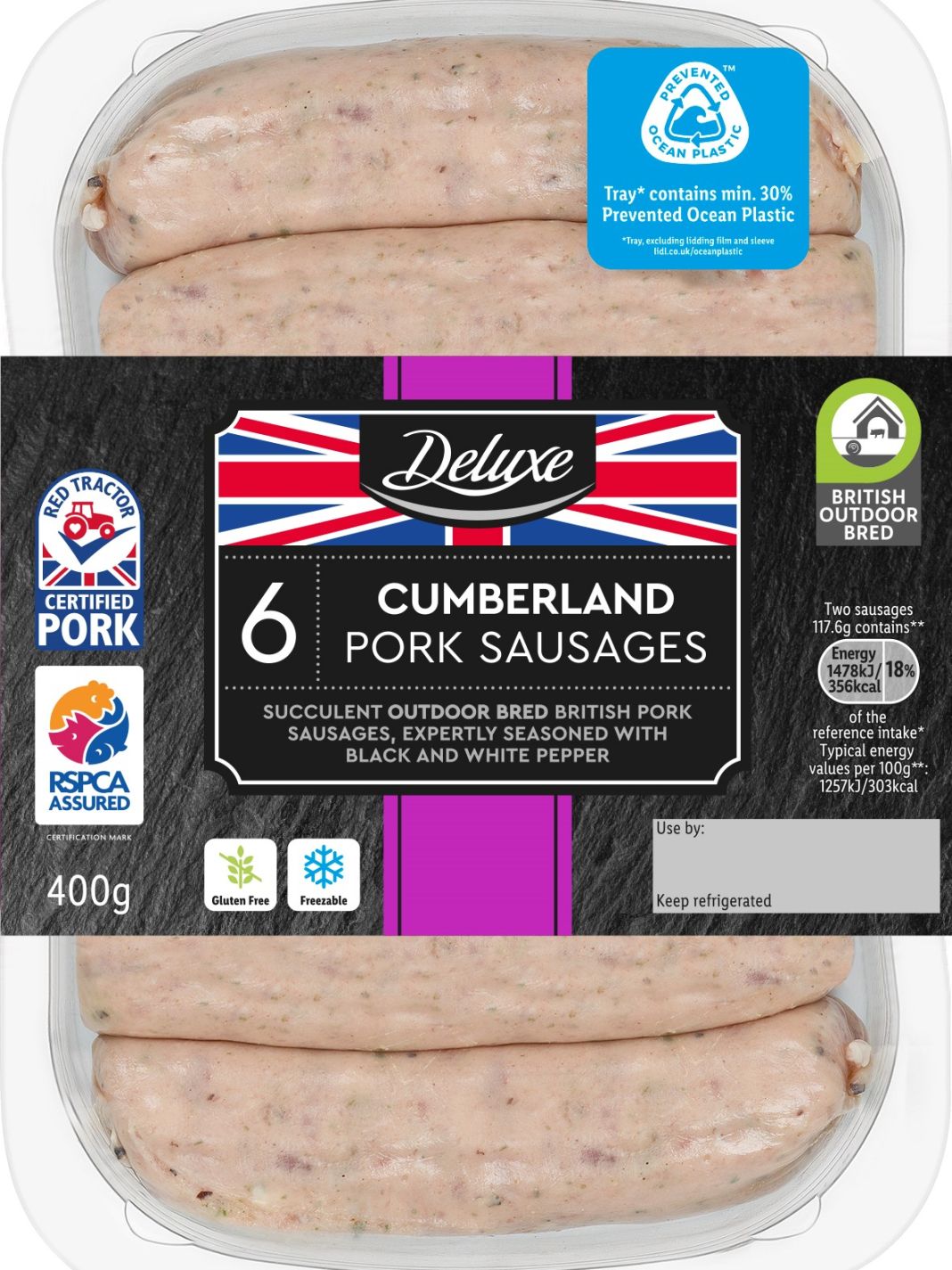
- ‘Prevented Ocean Plastic’ – an initiative which sees tonnes of ocean bound plastic repurposed for packaging instead – is being extended to Lidl GB’s fresh meat range packaging
- New packaging to now feature in discounter’s 400g and XXL 667g Deluxe sausages
- The extension will prevent over 40 tonnes of plastic from entering the ocean every year – equivalent to 1.7 million water bottles
From this week, Lidl’s 400g and XXL 667g Deluxe sausages – which are RSPCA assured and certified to Red Tractor standard (QMS standard in Scotland) - are now packaged in trays containing a minimum of 30% ‘Prevented Ocean Plastic’ (POP). This means that households preparing part of their morning fry up can help to prevent single-use plastic waste from entering our seas.
In 2020, the discounter became the first UK supermarket to incorporate ‘Prevented Ocean Plastic’ (POP) into some of its fish packaging. Now ‘Prevented Ocean Plastic’ (POP) is used in most of Lidl’s own brand fresh fish ranges and is also used in some of the discounter’s breaded poultry ranges.
Earlier this year, Lidl reached the milestone of preventing the equivalent of 15 million plastic water bottles from entering the ocean. This latest change would see an estimated additional 1.7 million water bottles prevented from entering the ocean each year – around 40 tonnes of plastic.
Amali Bunter, Lidl GB’s head of responsible sourcing and ethical trade, said: “As the first UK supermarket to launch packaging using Prevented Ocean Plastic, we are so proud to have now prevented the equivalent of over 15 million plastic water bottles from entering the ocean. Of course, our commitment to tackling the detrimental impact of plastic waste doesn’t end there and we’ll continue to work with our suppliers to build on our efforts.”
POP packaging, supplied and developed in conjunction with Bantam Materials, is made from discarded water bottles found in Southeast Asia within 30 miles of a coastline or major waterway that feeds into the ocean. This waste is then sorted and processed before being used in packaging. The entire process is fully traceable, with a robust documented chain of accountability. Packaging containing POP contains a minimum of 30% Prevented Ocean Plastic.
Shoppers can spot the distinctive POP packaging in-store by the blue and white logo on certain items.




